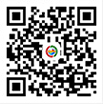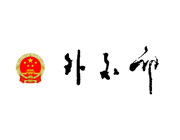


African Members of FOCAC
- Algeria
- Angola
- Benin
- Botswana
- Burkina Faso
- Burundi
- Cabo Verde
- Cameroon
- Central Africa
- Chad
- Comoros
- Congo
- Cote d'Ivoire
- Congo(Kinshasa)
- Djibouti
- Egypt
- Equatorial Guinea
- Eritrea
- Ethiopia
- Gabon
- Gambia
- Ghana
- Guinea
- Guinea-Bissau
- Kenya
- Lesotho
- Liberia
- Libya
- Madagascar
- Malawi
- Mali
- Mauritania
- Mauritius
- Morocco
- Mozambique
- Namibia
- Niger
- Nigeria
- Rwanda
- Sao Tome and Principe
- Senegal
- Seychelles
- Sierra Leone
- Somalia
- South Africa
- South Sudan
- Sudan
- Tanzania
- Togo
- Tunisia
- Uganda
- Zambia
- Zimbabwe
- The Commission of the African Union
Tunisia
(Updated March 2018)
【OfficialName】Republic of Tunisia
【Area】16.2 k㎡
【Population】11.45 million (2017). More than 90% of the residents are Arabic, and the rest are Berbers. Arabic is the national language and French is also commonly spoken. Islam (mainly Sunni) is the national religion. There are also people believing in Catholicism and Judaism.
【Capital】Tunis, with a population of 2.6 million
【Head of State】President Beji Caïd Essebsi, elected in December 2014
【Holiday】National Day/ Independence Day (20 March)
【Geography and Climate】Located in the northern part of Africa, Tunisia borders Algeria on the west, Libya on the southeast, the Mediterranean Sea on the north and east, and Italy across the Strait of Sicily, with a coastline of 1,300 km. The northern part has Mediterranean climate, which is hot and dry in summer and mild and rainy in winter. The southern part has tropical desert climate. The hottest month is August, with an average temperature of 21 to 33℃; the coldest month is January, with an average daily temperature of 6 to 14℃.




